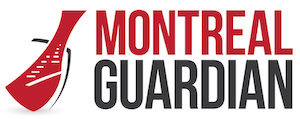Canada’s healthcare privacy landscape is complex and growing more so with each advance in digital health and artificial intelligence. While the Personal Information Protection and Electronic Documents Act (PIPEDA) governs most private-sector data use, health-specific laws vary by province, creating a regulatory maze for care providers operating across jurisdictions.

With rising public concern around privacy, and regulators increasing scrutiny on tech systems, it’s no longer enough to simply encrypt data or train staff. Providers need care management software that actively supports compliance with both federal and provincial privacy frameworks.
Cross-Provincial Confusion: A Compliance Headache
Care providers operating across multiple provinces particularly in home care, disability services, and allied health face real challenges in ensuring compliance with overlapping laws.
For example:
- Ontario enforces PHIPA (Personal Health Information Protection Act)
- Alberta follows HIA (Health Information Act)
- Quebec’s privacy reforms (under Law 25) introduce GDPR-like obligations
- Federal-level rules under PIPEDA apply unless provincial law is deemed substantially similar
This fragmented regulatory landscape often leaves multi-provincial providers in the dark. Can they store data in the
cloud? Who can access client notes across teams? Is AI triaging compliant? Without built-in compliance tools, answers are hard to come by and mistakes are costly.
The Push for De-Identification and Data Minimisation
As AI, predictive analytics, and remote care tools evolve, expectations for privacy are escalating. Regulators now expect software platforms to:
- Minimise personal data collection (collect only what’s strictly needed)
- De-identify data when used for analytics or planning
- Restrict access based on role or location
- Log all access attempts and data sharing events
Legacy systems and spreadsheets simply can’t support this. Modern care providers need platforms like ShiftCare that are built from the ground up with privacy-by-design—limiting exposure and providing audit-ready logs to demonstrate compliance.
Why Breaches Cost More Than Just Fines
Non-compliance doesn’t just mean a slap on the wrist. Under provincial laws and PIPEDA, breaches can result in:
- Fines up to $100,000 per violation
- Mandatory breach notifications to affected individuals
- Public reputation damage that erodes client trust
- Class action lawsuits, especially if AI or tech is involved
Even a minor oversight—such as emailing a care plan to the wrong recipient or failing to deactivate an old staff login—can trigger regulatory and legal consequences.
By using software like ShiftCare, which offers access controls, secure messaging, and audit trails, providers reduce the risk of such events and can show regulators their due diligence in protecting client information.
ShiftCare: Helping Providers Navigate Privacy with
Confidence
ShiftCare is more than just care rostering software. For Canadian providers, it delivers a platform designed with security, compliance, and user-friendliness in mind.
Key privacy features include:
- Role-based access control
- Secure document sharing and storage
- Activity logs for all client file access
- Consent tracking for informed service delivery
- Remote access control to support mobile teams safely
Whether you’re based in British Columbia or New Brunswick, ShiftCare supports the compliance posture needed under PIPEDA and provincial privacy laws without slowing your team down.
The Future: Privacy as a Competitive Advantage
As clients and families become more privacy-aware, trust is becoming a major differentiator in the care sector. Software that aligns with PIPEDA and local legislation not only avoids risk—it builds confidence.
In the coming years, expect:
- Audits on digital care systems to increase
- Cross-border data handling rules to tighten
- AI features to trigger deeper compliance
obligations
Providers who proactively choose privacy-first software will stay ahead of the curve—earning client trust and regulatory favour in a rapidly changing sector.
